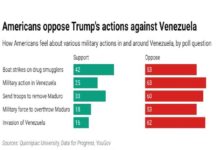The Case for a New Planetary Politics
By Stewart M. Patrick
The planet is in the throes of an environmental emergency. Humanity’s continued addiction to fossil fuels and its voracious appetite for natural resources have led to runaway climate change, degraded vital ecosystems, and ushered in the slow death of the world’s oceans. Earth’s biosphere is breaking down. Our depredation of the planet has jeopardized our own survival.
Given these risks, it is shocking that the multilateral system has failed to respond more forcefully and has instead merely tinkered at the margins. Although the United States and the European Union have adopted measures to slow the pace of global warming—by setting more aggressive greenhouse gas reduction targets, for example—nothing guarantees that they will adhere to those pledges, and such steps do little to encourage decarbonization in China, India, and other major emitters. These efforts also fail to address other facets of the looming catastrophe, not least collapsing biodiversity.
The natural world obeys no sovereign boundaries, and neither does the worsening ecological crisis. It is time to take bold steps to overcome the disconnect between an international system divided into 195 independent countries, each operating according to its own imperatives, and a global calamity that cannot be resolved in a piecemeal fashion. It is time to govern the world as if the earth mattered. What the world needs is a paradigm shift in U.S. foreign policy and international relations—a shift that is rooted in ecological realism and that moves cooperation on shared environmental threats to center stage. Call this new worldview “planetary politics.” All governments, starting with Washington, must designate the survival of the biosphere as a core national interest and a central objective of national and international security—and organize and invest accordingly.
Continue reading at www.foreignaffairs.com
We remind our readers that publication of articles on our site does not mean that we agree with what is written. Our policy is to publish anything which we consider of interest, so as to assist our readers in forming their opinions. Sometimes we even publish articles with which we totally disagree, since we believe it is important for our readers to be informed on as wide a spectrum of views as possible.











